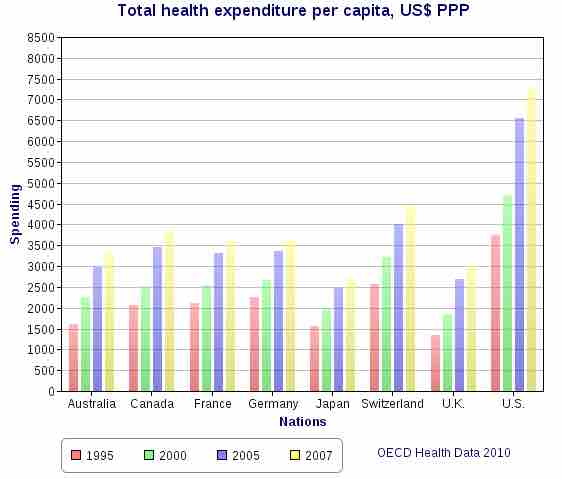Background
Universal healthcare--sometimes referred to as universal health coverage, universal coverage, universal care, or social health protection--usually refers to a healthcare system that provides healthcare and financial protection to all citizens. It is organized to provide a specified package of benefits to all members of a society with the end goal of providing financial risk protection, improved access to health services, and improved health outcomes. Universal healthcare is not a one-size-fits-all concept, nor does it imply unlimited coverage for all people. Three critical dimensions can determine universal healthcare: who is covered, what services are covered, and how much of the cost is covered.
Universal healthcare systems vary according to the extent of government involvement in providing care and/or health insurance. In some countries, such as the United Kingdom, Spain, Italy, and the Nordic countries, the government has a high degree of involvement in the commissioning and delivery of healthcare services. In these countries, access is based on residence rights, and not on the purchase of insurance. Other countries have a much more pluralistic delivery system of obligatory health insurance, with contributory rates based on salaries or income and usually funded jointly by employers and beneficiaries . Sometimes the healthcare funds are derived from a combination of insurance premiums, salary-based mandatory contributions by employees and/or employers to regulated sickness funds, and by government taxes.

Total Health Expenditure Per Capita, US Dollars
This image depicts the total healthcare services expenditure per capita, in U.S. dollars PPP-adjusted, for the nations of Australia, Canada, France, Germany, Japan, Switzerland, the United Kingdom, and the United States with the years 1995, 2000, 2005, and 2007 compared.
Proponents of Universal Healthcare in the United States
Proponents of healthcare reforms that call for the expansion of government involvement in order to achieve universal healthcare argue that the need to provide profits to investors in a predominantly free-market health system, and the additional administrative spending, tends to drive up costs and lead to more expensive healthcare.
According to economist and former US Secretary of Labor, Robert Reich, only a "big, national, public option" can force insurance companies to cooperate, share information, and reduce costs. Scattered, localized, "insurance cooperatives" are too small to do that and are "designed to fail" by the moneyed forces opposing Democratic healthcare reform.
The United States has instead adopted a single-payer system for healthcare. The term "single-payer healthcare" is used in the United States to describe a funding mechanism meeting the costs of medical care from a single fund. Although the fund holder is usually the government, some forms of single-payer employ a public-private system.